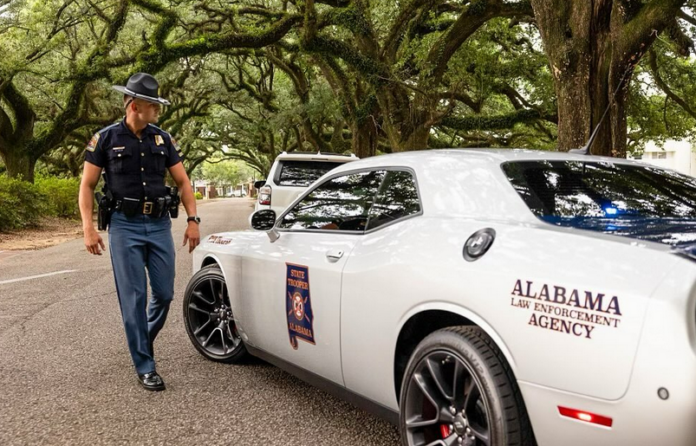MONTGOMERY, Ala. – Schools across the state are back in session, or will be soon, meaning heavier traffic and busier morning commutes. This school year, ALEA is urging parents, teen drivers and citizens of all ages to join the Agency’s “Roadway to Success” campaign and drive responsibly and arrive safely.
ALEA Secretary Hal Taylor said, “We encourage everyone to take action by talking to your children about safety and set an example by practicing safe driving habits. Plan for plenty of extra time to arrive at your workplace or destination. Even if you are not a parent dropping off your child at school, keep in mind that there is potential for more traffic on roadways with young drivers and congestion will grow around school zones. Be extra cautious for school buses, pedestrians and children walking or biking to school.”
Director of ALEA’s Department of Public Safety, Colonel Jonathan Archer agreed and said, “The safety of our students and young drivers is a paramount concern this time of year. With a lot of first-time drivers on the road heading to school, we urge all drivers to exercise patience and understanding. Please remember these new drivers are gaining experience and may make mistakes. To ensure safety for all, please remain alert, put away cell phones, and always wear your seatbelt.”
According to crash data for the State of Alabama in 2022, more than 56 percent of all traffic fatalities documented were not restrained. In contrast, more than percent of individuals involved in traffic crashes but unharmed were reported to have been using seat belts.
“One of the easiest and safest choices drivers and passengers can make is to buckle up,” Colonel Archer continued. “We are losing way too many Alabamians of all ages in traffic crashes. We strongly encourage everyone to understand the potentially fatal consequences of not wearing a seat belt and learn what you can do to make sure you and your family are properly buckled up every time. Parents, please make time to talk with your teens before they get behind the wheel and make sure they understand that buckling up could save their lives.”
With a focus on newly licensed 16- and 17-year-old drivers, ALEA stresses the importance of responsible driving habits. These young drivers, as well as all motorists, should remember the following:
- Seat Belt Usage: Seat belts save lives. Always use your seat belt and ensure that all passengers in your vehicle do the same.
- Distraction-Free Driving: Avoid such distractions as texting, eating or playing loud music while driving. Your full attention should be on the road.
- Obey Traffic Laws: Adhere to speed limits, traffic signs and signals. Respect other drivers on the road and be patient and courteous. Additionally, never pass a vehicle that has stopped for pedestrians.
- Alabama’s Graduated Driver License (GDL) Law: Remember Alabama’s GDL restricts 16-year-old drivers from having more than one nonfamily member in the vehicle when driving.
- No Alcohol or Drugs: Never drive under the influence of alcohol or drugs. Impaired driving is not only illegal, but it is extremely dangerous.
**School Zone Safety**
ALEA urges all motorists to exercise caution and patience when driving through or near school zones and when sharing the road with school buses. It is crucial to adhere to the following guidelines for the safety of students:
- Maintain a Safe Distance: Always keep a safe distance between your vehicle and a school bus to allow for sudden stops and children crossing the road. Additionally, watch out for children on bicycles, and leave at least 3 feet between your vehicle and the cyclist when passing them.
- Stop for School Buses: Obey all stop signs and flashing lights on school buses. Failure to stop for a school bus loading or unloading children is not only illegal, but it also endangers young lives.
- Be Alert: Pay attention to school zones and obey speed limits. Children may be crossing the road or walking near school premises. Also watch for bikes coming down driveways or from behind vehicles parked on the street.
For more information and resources on school travel safety, visit www.alea.gov.




























